11.22.12
Posted in Google, IBM, Patents at 6:39 pm by Dr. Roy Schestowitz
Law school dropout relies on lawyers, legal loopholes
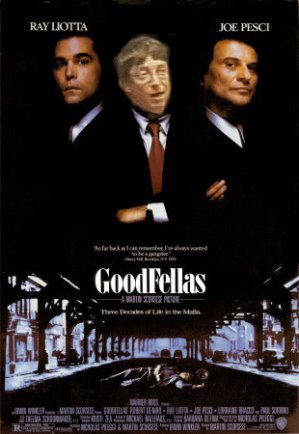
Summary: Notable new challenges to software patents advocacy from lawyers (the fox in the hen house)
TOP journal Nature has a new article from Joshua M. Pearce, who protests against nanotechnology patents and names Linux/FOSS for backing of his assertion that patents only slow down progress. In that sense, Pearce put forth the idea that software patents — by inference — slow things down. For corporations whose ultimate goal is to increase income this whole dimension called progress is secondary. It leads to the innovator’s dilemma, so it can actually reduce income. Disruption requires making new machines, for example. The lifetime of cash cows is lessened. This is why managers might never like progress, unless it is truly necessary for survival in the market. Managers can also hire lawyers who specialise in how to use patents to artificially slow down progress, by getting granted monopolies on certain essential processes. Patents also help raise the price of products, which can in turn help income, at customers’ expense of course.
The class of managers and patent lawyers has become the anathema of scientists, whose main goal is to improve knowledge or products/programs, which they believe can improve income too. Software does not require machines for manufacturing/copying, so the innovator’s dilemma does not quite apply. Why is it that some people still try to impose software patenting on everyone? Clearly, such people care neither about business nor science. They are not business(wo)men or scientists, they are leeches. So why is it that in an online debate in Wired there were so many law professionals talking about software patents? One of them, Duffy, was one among perhaps half a dozen. As we pointed out repeatedly, there too many law professors in Wired and hardly any programmers like Stallman (he was the only one). We see this again and again. It’s like a stacked panel. How about a forum or a series with actual software professionals and not career lawyers? Who is affected the most by such patents?
Stallman, a programmer by trade (he turned into an activist), shatters the claims made by Duffy, the law professor. A troll patents-hostile author covered it:
The large, bearded man bounded to the front of the room last Friday, hand thrust into the air, fingers shaking. It was a question-and-answer session, but he clearly wouldn’t be able to wait long. He began speaking just before a conference organizer moved to hand him the microphone.
“So many stupid insults—and mistakes!” shouted Richard Stallman, the father of the free software movement. “I proposed a way to solve the problem! It’s elegant, and it gets right to the point. Your criticisms are completely wrong.”
The speaker he was denouncing, Professor John Duffy of the University of Virginia, had been defending software patents to the assembled crowd a moment ago. Duffy was actually proposing reforms, but as was the case with most speakers at this legal conference, Duffy’s reforms weren’t quite what Stallman was looking for. He was looking for a “safe harbor” for software—essentially, a total ban on any patents that touched on software.
Duffy raised the specter that some things might not be invented at all without patents, in software and other fields. “The only thing worse than a patented technology that burdens the public is not having a technology at all,” he said. Sure, some software patents were a pain, but others were protecting important work. “The question is, will you get very serious research that is patent-motivated? Speech recognition, for example, is very patent-intensive.”
In Stallman’s view, the idea that society might be able to eliminate “bad patents” while keeping good ones is a kind of Jedi mind trick. Offering patents as a reward for software development—a system where the prize is a right to shut down someone else—is fatally flawed.
The “bad patents” party line is also advanced by Red Hat lawyers and lawyers who run a patent front for companies like IBM (e.g. OIN, USPTO). It’s no good taking their advice because they defend their own occupation, which is not software development. Georg C. F. Greve was at an event this morning where legal people pushed software patents into FOSS (IBM style), under the “OSSFRAND” banner. Here are Greve’s dents from the sessions. They are self explanatory really:
- Chief economist of #EPO, Nikolaus Thumm, explains patents are supposed to grow public domain of knowledge at http://is.gd/jHZLko #OSSFRAND
- This might be a good time to work of #WIPO at SCP/12 and SCP/13 on the economic rationale of patenting: http://is.gd/e6S1uy #OSSFRAND
- Iain G. Mitchell: “FRAND is smoke and mirrors… but what does it mean?” Points out that “agreeing on fair forms no contract” #OSSFRAND
- Provides example of how Nokia and Apple disagreed on what is “fair” and had to have the courts sort it out. #OSSFRAND
- …and explains how that can subvert standard setting by retracting the offer after the fact. Except in Scotland & Romania #OSSFRAND
- FUD from Siemens: “Open Source is not free, you have to comply with the license, I cannot just do what I want with your software!” #OSSFRAND
- Does this mean I am entitled to do whatever I please with Siemens software?
 #OSSFRAND
#OSSFRAND
- (Paraphrasing) France Telecom: “I will render my presentation pointless by ignoring the basic definitions of terms I am using.” #OSSFRAND
- Microsoft dropping its ‘but we’re now open and collaborative’ mask at #OSSFRAND
- France Telecom sent a stand up comedian to #OSSFRAND: “Why would a large patent holder try to enforce patents on small companies?”
Kevin Drum, in response to the nonsense from Kappos, IBM's keeper of the patent cartel, writes the following after quoting Timothy B. Lee’s article
A World Without Software Patents Would Be a Perfectly Good World
[...]
We already know what would probably happen if software patents didn’t exist. That’s because, for the most part, they didn’t exist until the early 70s, and thanks to fights between the courts and the patent office, they didn’t become common until the late 80s. And yet, the era from the 50s through the 80s was about as dynamic and innovative as you could possibly imagine. Lack of patents simply doesn’t seem to have had the slightest effect on the growth of the software industry.
The world is different today, of course. But I see little evidence that software patents are any more necessary now than they were during the adolescence of the computer industry. Rather than spurs to genuine innovation, they’ve evolved into little more than virtual armaments that big companies use to fight virtual wars with each other. And virtual wars are no better for economic growth than real ones. Honestly, it’s long past time for software patents to be put out of their misery and for software companies to focus their attention on inventing new stuff, not wasting countless man-hours of time building defensive patent portfolios with no real-world value aside from providing protection against other companies who are building their own defensive patent portfolios for the same reason. This particular arms race got out of hand a long time ago.
Some scholars argue that all patents — not just software patents — should be deprecated. █
Permalink
 Send this to a friend
Send this to a friend
11.21.12
Posted in GNU/Linux, IBM, Microsoft at 5:50 pm by Dr. Roy Schestowitz
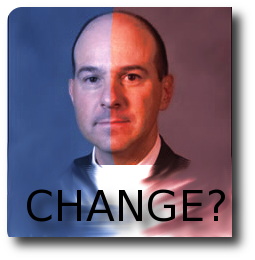
No change, just protectionism
Summary: Kappos’ words are telling in the sense that they expose him as the Bernanke of monopolies in software, to borrow an analogy from the Federal Reserve et al. and what they mean to various types of banks
“Patents on software are vital to American economy,” says the head of the USPTO and “calls to abolish them are wrong” (brave words). So he incites more people against the monopoly office he runs. Glyn Moody writes: “world to Kappos: get lost (oh, wait you are…)”
The headline of the report is “US patent chief to software patent critics: ‘Give it a rest already’” and it says:
David Kappos, the head of the United States Patent and Trademark Office, offered a strong defense of software patents in a Tuesday address at the Center for American Progress. Kappos touted several provisions of the America Invents Act (AIA), which he argued would allow the patent office to weed out low-quality software and business method patents.
Addressing those who claim the patent system is broken, Kappos said, “Give it a rest already. Give the AIA a chance to work. Give it a chance to even get started.”
Now we see built-in bias in the USPTO, which is led by a patent guy from IBM, one of the leading proponents of software patent and the biggest member of the patent cartel. Another growing member is Microsoft, which catches up with IBM on patent filings after hiring Mr. Phelps from IBM. Microsoft is trying to elevate the charges it derives from Android through this cartel, as Groklaw helped show us. Pamela Jones writes:
I know you join me in thanking our reporter for such detail, and his boss for letting him take the time. Imagine if all we had was media reports.
This trial was stacked by Microsoft boosters, so press coverage was deficient, obedient, and sometimes indirectly funded by Microsoft. The bottom line is, we must start challenging the cartel, IBM included. ITC is an extension of this protectionist mechanism. █
Permalink
 Send this to a friend
Send this to a friend
11.14.12
Posted in Apple, IBM, Patents at 8:07 pm by Dr. Roy Schestowitz
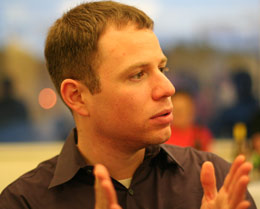
TechDirt’s Mike Masnick
Summary: Famous monopoly abuser (IBM) chooses to publicly promote FOSS-hostile legal frameworks, only to find its arguments shredded to pieces by TechDirt
IBM has been somewhat of a traitor whenever it advanced software patents around the world, e.g. Europe and New Zealand. IBM’s arguments are full of holes. For instance, IBM tried to insinuate that patents help Open Source. Backlash to this lobbying effort was great at the time.
Here is Mosnick with an excellent, success rebuttal that covers many of the key points. It’s nonsense-burying rebuttal that goes along the lines of, you have more patents, which means… well, that you have more patent monopolies, not innovation. Or, something is claimed to be successful because of patents, not despite of patents — how often do we see that strategic fallacy in the copyright lobby too?
Wired kindly reprinted the rebuttal which says:
Rebuttal: ‘The Patent System Works Fine Because… Hey Look Over There!’
IBM’s Chief Patent Counsel, Manny Schecter, has one of the most ridiculous defenses of the patent system you’ll ever see over at Wired, entitled With All Due Respect: The Patent System’s Not Broken. Having debated the patent system for years, I’ve noticed a pattern among patent system defenders who are big time patent lawyers. Their argument tends to amount to: see this wonderful thing? It exists because we have patents. Period. The fact that whatever it is they’re pointing to probably has nothing to do with patents will never be acknowledged.
[...]
The reason for this is not difficult to assess if you’re not a patent lawyer. It’s that companies don’t sell “patents,” they sell products. And you can sell products whether or not they’re patented. If you build something people want, you can figure out a way to sell it — even if someone copies you. In fact, what plenty of other research has shown is that (again, contrary to what many lawyers believe) copying market leaders is often a hell of a lot more difficult than people believe. And, of course, even if you have a direct copy, it doesn’t mean you can really compete. The first mover advantage is important, but so is knowing how to market and sell products, and copiers often don’t do a good job on that front. So, yes, there are plenty of reasons companies would spend a lot of money without patents.
[...]
Where to start? First off, which economists? Second, having your value attributed to your “intellectual property” (loosely defined) is not the same thing as saying that it’s because of intellectual property laws. This is a common and ridiculous mistake that many make — assuming that because the things currently covered by IP laws are important, the laws themselves must be important. Ideas, content, innovation etc. all exist absent IP laws. This is something that patent lawyers seem to conveniently forget or ignore. Next, the $5 trillion number and the 40 million jobs claim — well, that’s equally bogus, as we’ve discussed before. It’s based on the ridiculous and obviously faulty belief that these jobs and “contribution” to the economy are due to “IP laws” and not other economic activity such as people actually selling stuff. And those jobs? Yeah, anyone who claims that has lost all credibility, because, remember, it’s actually mostly about trademark, and that means that 2.5 million of those jobs are actually people working at grocery stores. Sorry, dude, you don’t get to claim the checkout bagger as a reason why we need stronger patent laws.
[...]
In the end, none of the arguments he makes even come close to making sense. At best, he argues some sort of bizarre correlation to make his point, but most of the time he’s just pointing elsewhere and pretending it has something to do with patents. We could just as easily argue that patents have caused population growth in the US. I mean, look, the population has grown… and we have patents! And it would be just as meaningless as every single argument he makes.
Over at Groklaw, a pro-IBM site, Jones wrote: “The software industry was built when there were no software patents, as Bill Gates himself has pointed out. The patent system is broken, if you are not already one of the three or so “winners” already in place. That’s who it works for. But innovation doesn’t come from them.”
Manny Schechter speaks for a monopoly abuser from the old days, he does not speak for scientists. Ansel Halliburton, a patent lawyer, showed similar pro-patents leanings when he said Apple is getting money from HTC (FUD!). “Plus,” writes Jones, “FOSSPatents is drooling loathesomely that Nokia will win royalties from HTC as well next. How’s that for a free market? “Let’s all get together and kill of Android,” eh?”
We’ll discuss this in the next post. It’s all just FUD from patent lawyers, Microsoft lobbyists, and some inane boosters. And this FUD has travelled way too far. █
Permalink
 Send this to a friend
Send this to a friend
08.25.12
Posted in IBM, Microsoft, Patents at 10:19 am by Dr. Roy Schestowitz
IBM still a closeted enemy of public interests
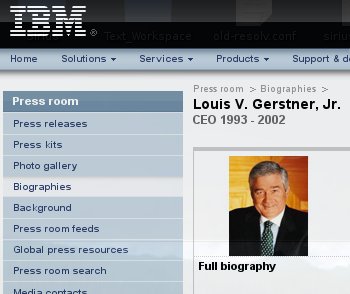
Summary: US corporations are trying to distort NZ policy so that it reflects the very opposite of what people of New Zealand (NZ) want and need
THE multinationals from the US, namely Intel, IBM (as covered before), and of course Microsoft, have been lobbying for software patents in New Zealand. According to news from the site which is dedicated purely to fighting software patents, “[o]n May 7th and June 8th, 2010, Microsoft and IBM met privately with members of New Zealand’s Ministry of Economic Development (MED). They claim to have convinced the Ministry to abandon plans to exclude software from patentability in the proposed Patents Bill.
“IBM should be chastised for doing what it’s doing right now.”“There was also a private exchange of emails between the MED and Microsft, IBM, and the Business Software Alliance in the month before and after the meeting, where those three organisations submitted policy documents.”
IBM should be chastised for doing what it’s doing right now. Only if public pressure mounts will IBM recede from these positions that also the BSA is pushing. We thought that IBM had dumped the BSA last year (or the year before that). █
Permalink
 Send this to a friend
Send this to a friend
06.26.12
Posted in IBM, Mandriva, Office Suites, OpenDocument, OpenOffice at 10:17 am by Dr. Roy Schestowitz
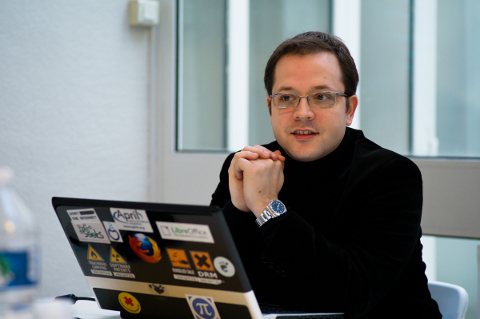
Summary: An interview with the Open Source Relations Manager of Mandriva, one who is boasting a pivotal role in the free office suites space
MR. Charles-H. Schulz is prominent in the Free/open source world and he is no stranger to Techrights. 4 years ago we wrote about him in relation to ODF advocacy and a year later we interviewed him. Recently, Charles got an appointment at Mandriva and last week he also got married. We decided to catch up and learn more about Mandriva, Openoffice.org, and LibreOffice.
Techrights: Please explain to us your role in Mandriva.
Charles-H. Schulz: My official title is “Open Source Relations Manager”. My role is to help with the general open source strategy of Mandriva SA, and that implies several levels of involvement, either with the community or with the corporate level as well.
How does one go about transitioning from a corporate-centric model into a community-based one?
The answer is both simple and complex at the same time. Let’s define the terms here for the sake of clarity. A corporate centric model of open source governance, or better, a corporate centric model of FOSS project is a model where one corporation defines the project, is supposed to reap the benefits out of it, has a weak governance structure, and where most of the contributors are individuals who contribute to the project are individuals who are employed by the said corporation or by its affiliates.
“It’s a model that allows for a diversity of stakeholders to get involved at various levels of the project, from the contributor to the leadership.”A community-centric model is not a model where there are no corporations around. It’s a model that allows for a diversity of stakeholders to get involved at various levels of the project, from the contributor to the leadership. It is also a model where the governance structure tends to be more defined, because the project is actually much more independent and does not rest on one sponsor for most of its resources and contributors.
So how do we transition from the former to the latter is by assessing what the main sponsor can offer, and by setting up a governance structure that allows a diversity of contributors to get involved. The resources question here is crucial. What do we need? How many servers? What’s the migration process? And of course, what’s the governance, and how do we make the new project truly independent from the former sponsor (regardless of the friendly or unfriendly relationship with this sponsor)?
I think the keyword here is “contributor”. If you have enough contributors outside the main sponsor who are coming from diverse affiliations, then you have a sustainable project.
That’s the kind of questions we have been studying on the 19th of June in Paris together with the Mandriva Linux community representatives. I think the results are very encouraging, and that we manage to make sense of what we want to do, how we are going to do it and why we do it; now we are entering the actual phase of work, and we’ll try to keep this committee work effective while trying to involve the community at large on specific areas.
What office suite does Mandriva use by default and why?
Mandriva uses LibreOffice by default. And if you ask why, it’s simply because it’s the best free office suite ever.
You have had experience ushering a community from one project (OpenOffice.org) to another (LibreOffice) amid times of uncertainty and great risk. Are these are parallels to this case?
I think there are, although here we have the main sponsor, Mandriva SA, who is very open about the reasons why it can no longer sustain a Linux distribution project on its own, and therefore is working directly with the community to make an independent project emerge. That’s the main difference. There are parallels though that tend to be more subtle: What we’re trying to achieve, just like with the transition from Openoffice.org to LibreOffice, is a culture shift from “it will get done by someone else” to “we must do it”. In other words, there is the same demand and urge to set up a fully meritocratic system.
How is collaboration between OpenOffice.org and LibreOffice coming along?
You mean between Apache OpenOffice and LibreOffice? Because Openoffice.org is dead, and it had several children. The collaboration is limited on practical terms because of the licensing differences, but we are rebasing our code on the latest Apache OpenOffice in order to be able to have a cleaner licensed base. Right now, we must still deal with the LGPL v3, and while it’s a great licence it cannot change over time; so we have embarked in a relicensing effort towards MPL v2 and GPL v3+ and we are looking forward the interesting switch at Apache OpenOffice from the Openoffice.org codebase to the Symphony codebase; there will certainly be some code we might be able to reuse. Although, when you come to think of it, it’s funny to enter the Apache Incubation Process with one software you’re inheriting, and to use a different software you’ve also inherited just after the incubation process is completed 
Mandriva was once one of the most used (if not the most used) distributions of GNU/Linux. Where would you position the distribution on those terms in 2012?
“What we will end up seeing in 2012 and onwards, is a great community powered distribution that’s separate from the company itself; and the company offering a range of Linux-powered products and platforms for the enterprise and the education market.”Let’s face it, the Mandriva Linux distribution was for years the most widely used distribution around. It’s not the case anymore. Several changes happen in the GNU/Linux distribution market and Mandriva never really caught them. It’s not so much that the distribution became outdated: if anything, using Mandriva today, or its fork, Mageia, shows just as advanced, beautiful and user-friendly the distribution is. But the alignment between a sound corporate strategy and the community side of things was never really thought of until now. What we will end up seeing in 2012 and onwards, is a great community powered distribution that’s separate from the company itself; and the company offering a range of Linux-powered products and platforms for the enterprise and the education market. So if anything, you’ll see more of Mandriva as a corporate distribution, and more of the Mandriva Linux community as a community distribution; there is no fork here, but a friendly and productive relationship with no exclusive reliance on each other.
Congratulations on the wedding. Have you gotten the wife using GNU/Linux yet?
 Oh, when I met Melissa she was already using the Gimp on Windows. She’s a very creative individual, and a few months after the beginning of our relationship, her old laptop broke. I introduced her to GNU/Linux; she used various distributions: Ubuntu for a long time, but also Mandriva, and now she’s a very happy Fedora user. I should also add that she created all of our wedding decorations, from the menus to the walls,
Oh, when I met Melissa she was already using the Gimp on Windows. She’s a very creative individual, and a few months after the beginning of our relationship, her old laptop broke. I introduced her to GNU/Linux; she used various distributions: Ubuntu for a long time, but also Mandriva, and now she’s a very happy Fedora user. I should also add that she created all of our wedding decorations, from the menus to the walls,
with the Gimp; she’s a poweruser of the Gimp and there are several community members, including me, who approached her asking whether she’d be interested in providing video tutorials for the project. █
Permalink
 Send this to a friend
Send this to a friend
03.07.12
Posted in Apple, IBM, Microsoft, Oracle, Patents at 2:20 pm by Dr. Roy Schestowitz
Summary: An expansion of scope at the OIN does not help resolve the real problems GNU/Linux and Free software at large are having
THERE IS an update on patents coming soon. According to Wildeboer from Red Hat, “Apple also wants 5-15 US$ per Android device. Just as Microsoft.” As the OIN’s CEO put it to me over the phone, Apple and Microsoft (he calls them the “duopoly”) are trying to make Android “uneconomic”, to use his term that he repeated a lot for over an hour. I recently got an invitation to meet him in London, but I had to decline because it’s far from where I live (Manchester), so instead I suggested an E-mail interview. They agreed, but when I asked questions such as how the OIN would deal with patent trolls (I named MOSAID) they seemed to have changed their mind about the interview. The matter of fact is, the OIN is flawed. It works for IBM perhaps, but not for us independent developers who are not part of a company weighing at hundreds of thousands of full-time employees (and tens of thousands of patents, which is not so impressive given the headcount).
A month ago the OIN boasted “Strong 2011 Licensing Performance” (whatever that practically means, notice the term “licensing”) and we keep wondering, what will they do about patent trolls? Microsoft is already operating through MOSAID. We foresaw this and asked the OIN about MOSAID more than a month ago. What about the Twin Peaks lawsuit against Red Hat (about s fortnight ago)? What can the OIN do? Nothing. Or not much.
Nevertheless, the OIN is addressing one of the other criticisms of its strategy. It expands its scope of coverage even further to more Free software projects such as
KVM, Git, OpenJDK, and WebKit. Mobile Linux distributions like Android, MeeGo, and webOS will also soon be expressly protected.
We asked about those Linux distributions over a month ago, but the OIN returned no response. The secrecy at the OIN needs to stop. And the hard questions — in particular the one about patent trolls — need to be tackled. Until then, destroying all software patents — not subscribing to the OIN — is the right solution. We find it interesting that OIN will cover WebKit, which is in part being developed by Apple — the cult which is suing Android/Linux and demands a tax or products embargo. OpenJDK is also covered despite the fact that an OIN member, Oracle, is suing a over Dalvik. Samba’s lawyer once said that the only solution is abolition and he was right. The OIN neither pursues nor advocates abolition; its business model and very existence depends on patents. Sites like Groklaw, which is led by a law professor, present a similar point of view, which can be problematic at times (patents being essential to one’s living). My intention is not to disparage anyone but merely to explain the conflict of interests and the point of view of companies like Intel and IBM (and their de facto front groups). █
Permalink
 Send this to a friend
Send this to a friend
01.13.12
Posted in IBM, Patents at 11:59 am by Dr. Roy Schestowitz

Summary: IBM claims a “record” on the privatisation — with government endorsement — of ideas
A few days ago we wrote about USPTO statistics. New numbers were suggesting that the patent levers are rising (more monopolies) as quality control is brought down and the press caught up with the patents professor following an official statement from sources including the USPTO, which is run by a former IBM guy. To quote the British technology press:
The annual rankings of patents awarded by the US Patent and Trademark Office used to come out of that government agency, but in 2007 it stopped because, as the public affairs officer told me at the time, people were too focused on patent counts and not on patent quality. Since then, IFI Claims Patent Services has diced and sliced the data in the USPTO databases and published the annual US patent count rankings, as a means of advertising for more complex patent services it offers for a fee.
IBM is a proponent of software patents and therefore not our friend. IBM used this to brag about its patents, claiming quite falsely that these are a measure of innovation. They are acting like it’s a contest and claim a record repeatedly, with some of the press playing along to that tune:
Weeks after the latest Blue Gene supercomputer shipped out from Rochester, IBM has topped the U.S. patent list for the 19th year in a row.
Big Blue tallied a whopping 6,180 patents issued in 2011. About 500 of those patents originated in Rochester.
I confronted an IBM manager over this. He insisted, as usual, that IBM acts responsively with patents. Now, to be fair, OIN relies a great deal on IBM and this new pile of patents reportedly helps Google defend Android (not in the ideal way [1, 2]). Does this quality as good news then?
Patents were a hot-button issue in 2011, so there’s no wonder so many companies were filling their portfolios with new intellectual property throughout the year.
Ideally, those patents oughtn’t be granted because they are a ‘theft’ of knowledge that otherwise can belong to society, not privatised quite so organically and arbitrarily. Isn’t it funny that the biggest client of the USPTO became its manager? The government should remove the power it gave to the USPTO if it wants to really encourage innovation. █
Permalink
 Send this to a friend
Send this to a friend
01.06.12
Posted in Apple, Europe, GNU/Linux, Google, IBM, Microsoft, Patents at 7:12 pm by Dr. Roy Schestowitz
Linux proponents unite against proprietary aggressors

Summary: A roundup of patent news about Android/Linux and some of the latest events that relate to it
THE decline of Windows Mobile and all of its other identities (Microsoft keeps Sevenwashing it) has been so rapid that Windows is now a 1% player in a market that keeps growing and growing.
“Windows Phone reaps what it sows” says one journalist who explains it as follows:
Misunderstood, mocked by its competitors, blocked from the market, and little used by the average user.
Ten years ago, this would have been a harsh but fair description of Linux. Today, however, it’s seems perfectly apt to use these labels to describe a completely different bit of technology: the Windows Phone operating system.
Even Nokia cannot save Windows (on mobile phones), so all that Microsoft can do now is become a leech through patents, e.g. via MOSAID and its patent extortion operations (notably Android “licensing”). In this age of many lawsuits that we find in the news all the time we realise that this problem is systemic too. After all, Apple too uses a similar strategy.
Looking at the USPTO for a moment, Matt Asay notes that:
2011: new record in patent grants, tied to Obama’s PTO chief not increased filings zite.to/y1nABx <Cue Talking Heads “Road to Nowhere”
Glyn Moody’s remark on the same report is sarcastic:
because what the world needs is lots more intellectual monopolies
James Love (of KEI) says:
During patent reform legislation, WH claimed low quality patents are problems. But USPTO just issued a record number.
The FFII asks James: “How do they measure patent quality in the US?”
Here is the report they all link to. It’s from a pro-patents circle, known to many as Patently-O (Dennis D. Crouch), and it says:
The USPTO issued more utility patents in calendar year 2011 than in any year in history. The 2011 total – just shy of 225,000 issued patents – is only a small increase over 2010, but towers above all other historic figures. The previous record was set in 2006 with about 173,000 issued utility patents. The dramatic rise in issuance rate is not tied directly to an increase in filings (although there has been a small increase in new application filings). Rather, the two-year increase appears to be the result of regime changes instituted by USPTO Director David Kappos who took office mid-year 2009 after being nominated by President Barack Obama.
the USPTO is a bubble and a sham. The sooner people realise this, the sooner it will be toppled. It serves a conspiracy of monopolies, parasites, and patent lawyers who drive up the price of everything and deny the entry of new competition into the market.
When in the news we see searching as a patent and even business methods as a monopoly we cannot help feeling that one productive response would be to expose the system, not just pertinent companies that exploit it to the extremes and harm Free software more than anything else. The USPTO is very dangerous at all levels because there are lobbyists who use the “USPTO model” to expand this same model to other countries. This include the UK-IPO that we have here in England. As one person puts it, “All in the American mind? US and UK take different approaches to assessing mental act exclusions”; if the unitary patent is passed through, the US may have the whole EU (EPO) assimilate to the USPTO. Already, some software patents are being approved in the UK. This is a new example from the news:
Image processing software not excluded from patentability, IPO rules
An IPO examiner had previously ruled that the invention was excluded from patentability on the grounds that the invention consisted solely of a computer program. Hewlett Packard, the company trying to patent the invention, appealed against the examiner’s ruling and the hearing officer has now upheld that appeal on the basis that the invention uses mathematical techniques that are sufficiently technical in nature to avoid being excluded from patentability.
Under the UK’s Patents Act inventions must be new, take an inventive step that is not obvious and be useful to industry in order to qualify for patent protection. An invention cannot be patented, according to the Act, if it is “a scheme, rule or method for performing a mental act, playing a game or doing business, or a program for a computer … as such”.
Henrion from the FFII writes that:
The problem with the patent system at the moment is that it’s being applied to intangibles: software and user interfaces
Here is one new example of it:
Lakeside Software, a leader in business intelligence solutions for IT professionals, today announced that the company has expanded its patent portfolio with the granting of a patent for the management of data across multiple computer systems.
Data too has patents on it now? How far will this go? And how abstract a computation is going to be deemed patentable? Oracle pushed copyrights and patents to the edge when it suggested that APIs too can be patented, which they probably can in the US.
We already know that the age of bankruptcy is an age of patent wars and Sun’s sale to Oracle had its “defensive” parents turn into hostile. Novell’s patents were sold to Microsoft and Apple, too (both companies are FOSS-hostile and litigate against Linux/Android). Here is the new story of another company that ran to the courtroom amid its demise: “The newspaper quoted unidentified people as saing Kodak could seek protection in the next few weeks if an effort to sell a collection of digital-imaging patents falls through.
“Kodak has sold patents valued at millions of dollars over the last several years in a bid to shore up its ailing finances.”
It’s actually a strong case against patents because companies become just a pile of orphaned patents (Novell included), and in turn this fuels wars, not sparking any innovation at all. Disregard the pro-patents propaganda from lawyers’ Web sites and instead watch why they like patents (starting 2012 with patent lawsuits). As one columnist in IDG put it:
When Netscape went public in the fall of 1995, few of us understood that we were entering an era of constant and accelerating change. Since then, 16 years of Moore’s Law has given us powerful and cheap hardware. The open-source software movement has made software that’s worth millions of dollars freely available to anyone who can click a mouse. As one can see, reducing these natural barriers to entry has made it easier to start a Web services business. These same trends have had an interesting effect on intellectual property strategy.
[...]
Open hostility toward patents from the open-source community and 10 years of judicial infighting over the patentability of “business methods” and other Web 2.0 technologies didn’t help matters. Many Web 2.0 companies underinvested in patents, when they should have increased their efforts to secure legal barriers to entry to offset the reduction in natural barriers to entry.
Actually, patents do not work for small players. That’s just the lie sold to us by the 1% (or less) who benefit from patents. Here is some more London-based propaganda dressed up as a press release:
The Decision Model is revolutionising Enterprise Decision Management by modeling the business logic (rules) behind key operational and strategic business decisions (http://www.azinta.com/Services/the-decision-model-solutions.html). The recent award of a US patent for The Decision Model to Knowledge Partners International (KPI) triggered an intense debate resulting in some commentators claiming that The Decision Model patent is an IP trap. Suleiman Shehu, the CEO of Azinta Systems – a KPI Consulting Partner, analyses the reasons for this debate and presents the evidence why The Decision Model patent is not an IP trap.
Decision-making as a patent. How about that, ladies and gents?
Moving back to the impact on FOSS, although Apple gets sued for patent violations, the company persists with its support for that same rotten system. “Last week,” says one article, “Apple applied to the US patent office to register facial recognition software…”
This affects me personally and professionally, too. “So instead of sliding to unlock the iPhone, iPad, or iPod Touch, one could simply point it at one’s face,” notes this article, among others that we mentioned in December. The point they are missing is that Apple gets a monopoly here. It is not good for anyone. Microsoft’s identity change to “patent aggressor” is on route as well [1, 2] (software patents). They are goodwill-washing it through gullible Web sites. With phrases like “patent helps”, there is clearly not a realistic expectation. And in the face of infographic propaganda from taxmen of technology (lawyers) we fortunately see some infographic sanity and we are able to see to what degree Android is the victim here (victim of Microsoft, Apple, and some of their allies). Google does not get patents anymore; in fact, “Google stopped submitting patents to the USPTO” because it’s pointless. To quote: “Software patent wars have always existed: companies fought them (or paid up), sometimes quietly, sometimes making a big fuss. However, something has changed over the last year or so: people started getting directly affected by software patents (ask anybody wanting a Samsung Galaxy Tab in Australia for Christmas 2011…). Lately, two things came to my attention: Google acquired 200 patents from IBM. But, more interestingly: Google hasn’t filed any patents over the last several months.”
Google does not apply for patents; it buys/gets them instead, usually from IBM [1, 2, 3, 4] under secret terms. An article for background can be found here:
Last year, IBM sold Google 2,000 or so patents ranging from mobile software to computer hardware and processors.
As other reports put it:
Google’s quest to build a strong patent portfolio continues with IBM assigning a further 222 patents to the search and advertising company. Details of the transaction have not been disclosed by either party, but the USPTO database shows the patents being transferred on 30 December 2011. This is not the first time Google has acquired IBM patents; over one thousand IBM patents were transferred to Google in both July and September 2011.
Some say that IBM is trying to defend Linux/Android in this case. “A trial date has been set in Oracle v. Google, or more accurately, an earliest trial date has been set,” writes Mark Webbink, who remarks on this bit of news:
SAN FRANCISCO (Dow Jones)–Google Inc. (GOOG) and Oracle Corp. (ORCL) have been scheduled to go to trial over an intellectual-property dispute related to Google’s mobile phone software in March, a development that could start to draw the lengthy spat between technology giants to a close.
There is a theory that Google’s new patents from IBM are capable of helping in this case (IBM is an Oracle competitor), but as the FFII points out, “Arms trading is a sustainable business but still mere economic efficiency waste.”
We shall assume that IBM’s interests in this case are in alignment with Linux interests. As we explained some days ago, there is apparently also an Android lawsuit (if not several) brewing against Microsoft and Apple. It’s getting rather interesting. █
Permalink
 Send this to a friend
Send this to a friend
« Previous Page — « Previous entries « Previous Page · Next Page » Next entries » — Next Page »
#OSSFRAND






 Oh, when I met Melissa she was already using the Gimp on Windows. She’s a very creative individual, and a few months after the beginning of our relationship, her old laptop broke. I introduced her to GNU/Linux; she used various distributions: Ubuntu for a long time, but also Mandriva, and now she’s a very happy Fedora user. I should also add that she created all of our wedding decorations, from the menus to the walls,
Oh, when I met Melissa she was already using the Gimp on Windows. She’s a very creative individual, and a few months after the beginning of our relationship, her old laptop broke. I introduced her to GNU/Linux; she used various distributions: Ubuntu for a long time, but also Mandriva, and now she’s a very happy Fedora user. I should also add that she created all of our wedding decorations, from the menus to the walls,

















 Content is available under CC-BY-SA
Content is available under CC-BY-SA